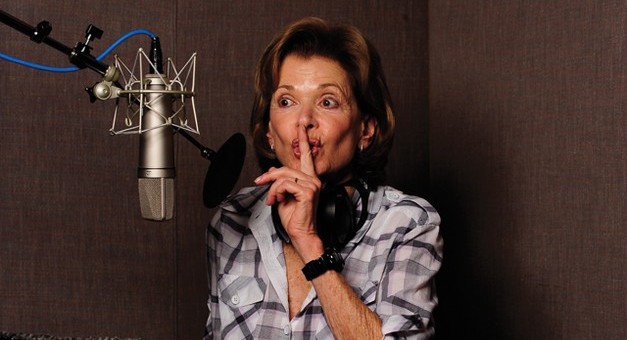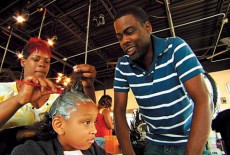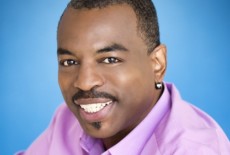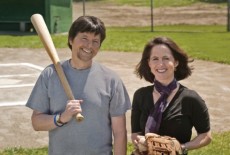Jessica Walter
Published February 9, 2012 in The A.V. Club
Welcome to Random Roles, wherein we talk to actors about the characters who defined their careers. The catch: They don’t know beforehand what roles we’ll ask them to talk about.
The actor: Decades before she was the sharp-tongued matriarchal monster on Arrested Development, Jessica Walter was already embracing her inner bitch. With breakout roles in Lilith, Play Misty For Me, a slew of soap operas, and television guest spots on everything from The Alfred Hitchcock Hour to The Big Bang Theory, the Emmy-winning actress can still level an ego with a single look. Walter currently splits her time between playing spunky retiree Elaine Robbins on TV Land’s Retired At 35 and alcoholic super-spy boss Malory Archer on FX’s animated series Archer. With the recent debut of Archer’s third season, the première of the second season of Retired At 35 coming this spring, and a new Arrested Development project on the horizon, Walter still keeps honing her comedic chops after half a century in the biz.
Lilith (1964)—“Laura”
The A.V. Club: This was your feature-film debut.
Jessica Walter: Wow, it was exciting, because there was Warren Beatty, who was the star. He had just been in Splendor In The Grass. He was a huge, big star and [we had] a wonderful director named Robert Rossen who did All The King’s Men, The Hustler… Jean Seberg was in the movie, and she was quite the top of the game at the time. She had just been in Saint Joan for Otto Preminger. Actually, it was my first movie, and it was Gene Hackman’s first movie. We played husband and wife.
AVC: The bulk of your career has been television roles. Does the medium make a difference? Do you prefer one over the other?
JW: I think if it’s a good role, it doesn’t matter the medium. It could be Broadway. I just did a Broadway play this year, Anything Goes, and that was a wonderful experience… The thing about movies is that you usually have more time in a feature. You know, TV, it’s got to be in by 7 o’clock… You don’t have the luxury of time to rehearse, to discover, whatever you usually do in a feature. So that’s the only difference as to why movies are maybe more pleasurable for an actor, because they’re not so rushed.
AVC: You’ve also done stints on soap operas, including Bare Essence in 1983, and One Life To Live from 1996 and 1997. How does the pace stack up?
JW: I don’t know how those soap opera people do it. My hat is off. I am in awe. One of my dearest friends just was recently on Days Of Our Lives for two years, and 30 pages a night, these people have… I don’t think I could. I honestly don’t. When I did it way back, the show was 15 minutes, in black and white, and it was live. The only other soap I ever did was like eight shows on One Life To Live.Eight shows is nothing. It wasn’t even every week. But I don’t know how they do it day in, day out. I’m envious. That really is astounding.
Play Misty For Me (1971)—“Evelyn Draper”
AVC: In an interview with The New York Post, you stated that playing a psychotic killer in Play Misty For Me wasn’t the biggest challenge you’ve had in a role.
JW: You know, I don’t know that I ever said that. That doesn’t sound like me, because every role is challenging. I think probably what I might have been referring to with that is that it’s not that difficult to find the rage or the anger. We all have that in us, and luckily, actors and actresses get to portray it, and it’s not frowned upon. Everybody has that in them. Everybody has wanted to kill somebody at one time or another. Everybody has been really, really angry about something, so if you just call on that in yourself, you find it’s not that difficult… With that particular role, she had to have this man or die. It’s that simple. I wouldn’t say it wasn’t challenging. It was.
AVC: This role seems to set up your trend of playing unbalanced, difficult women.
JW: Lucky me, because those are the fun roles. They’re juicy, much better than playing the vanilla ingénues, you know—Miss Vanilla Ice Cream. Yeah, that was great. Also, I was in a movie before that called The Group that Sidney Lumet directed, and I played sort of a little bit of evil bitchiness—and of course I’ve played lots of mothers from hell.
AVC: What attracts you to those roles?
JW: I don’t know that I’m attracted to them. I think people just think of me for them, and I read them and I like them… That seems to be what I get offered, and if it’s good enough, I’ll take it. And they are juicy, as I said. They’re much more fun to play and find the levels, because nobody’s that one-color evil. There’s lots of levels to why they became that way. Or maybe, for instance, with Arrested Development, Lucille really does believe that she’s being a good mother. It’s interesting and challenging to find the levels that make them characters you love to hate.
AVC: How do you find that, the levels of humanity in an evil character?
JW: For each character, it’s different. You have to build a backstory. Where did they come from? What did they need in their life that they didn’t get? What are their goals? What is their desperation? Especially in comedy. You know, if there’s no desperation, there’s no comedy. What are they desperate to have? What do they long for?
Amy Prentiss (1974-75)—“Amy Prentiss”
AVC: You won an Emmy for this one.
JW: I did. Lucky me, I did. It was a guest-star [role] on Ironside. That was a series with Raymond Burr. Remember, the detective in the wheelchair? You don’t, but it was a big show at the time. God, that was a long time ago. I was a guest star, playing [detective Amy Prentiss], and they decided to make it a series. That’s how it came about.
AVC: You had the leading role on that show, but you’ve also had one- or two-episode guest spots on an extensive list of shows, including Flipper, The Fugitive, Mission Impossible, Mannix, Hawaii Five-0, Wonder Woman, Joanie Loves Chachi, The Love Boat, Law & Order, and Touched By An Angel, among others.
JW: That’s how old I am, dear. That’s how long I’ve been around.
AVC: Is it easier to take these smaller roles, or to have a character that you stay with for season after season?
JW: You know something? Nothing’s easy. Seriously, there’s nothing easy. There’s something complicated and difficult if you really want to give 150 percent in anything you do in those areas, so honestly, that would be the answer. I don’t think that one is easier than the other at all.
Arrested Development (2003-2006)—“Lucille Bluth”
JW: I never mind talking about that show, because I love that show, and the writing was so brilliant. We hope to do more of them, as you probably know. We’re supposed to do a little series thing this summer for Netflix, and from that would come the movie. That’s the plan. It was just a real pleasure. And, you know, the writing—if it ain’t on the page, it ain’t on the stage, is my theory. And it was definitely on the page with that. Lucille was a terrific character. She was a great, strange, complicated person. I’m just so grateful I had the opportunity to do it.

AVC: Lucille Bluth has a lot of similarities to your character on Archer.
JW: Very similar. The only thing is that Malory on Archer has grey hair, and Lucille would never have her hair gray. And Malory is not a martini drinker. She’s much more of a highball-glass—whatever those drinks are in tall glasses. That seems to be more Malory, but they’re very similar, I have to agree. They’re definitely mothers from hell.
AVC: For both these roles, timing is crucial to make the characters charming and maximize what the audience gets out of them. How do you perfect the timing, since both shows have extremely quick dialogue?
JW: I don’t know. I don’t think comedy is something you learn. I think it’s something that’s either there or it’s not. When I read a script, I have to see the funny, and if I can see it’s funny, it helps me to be able to transmit that.
AVC: With Archer, and to a lesser extent, Arrested Development, the dialogue is contingent on quick, up-to-date cultural references. Do you stay on top of those trends?
JW: I absolutely don’t. I have no idea of half the things. I always have to ask, “What does this mean?” because I’m not trendy. Coming up in an episode of Archer, I forget what the scene was specifically, but there was something at the end, boom-chicka-boom or something… It was like what they do in porn movies. I said to [show creator] Adam [Reed], “Well, give me a line-reading, because I have no idea what you’re talking about.” So he did. There are many, many things that I don’t know what they’re talking about, so I just ask. Archer is probably the raciest thing I’ve ever done. Arrested Developmentwasn’t that racy. Anyone would know the references in that.
AVC: Speaking of racy, there was a great clip of a live performance of you reading Craigslist ads at the Eugene Mirman Comedy Festival last year.
JW: Oh my God. You know something? That was at an Archer panel at some club in Brooklyn. They wanted, like, a talent show or something, and Adam Reed, our brilliant creator commander-in-chief, said, “Well, we’ll just have you read off of Craigslist.” I had never even seen Craiglist. I know what it is. It’s advertising, and I said, “Okay.” I think it was like a mock Craigslist. It couldn’t have been real, because it was so off-color.
AVC: I’m pretty sure those are real.
JW: They’re real?
AVC: BJ for a bus pass? Yeah, that’s basically what Craigslist is.
JW: Don’t they advertise rentals, and, you know, products to buy? I didn’t realize Craigslist was personals, you know, like personals in the newspaper. But I went with it, and it was great fun. I had no idea what I was talking about. Like the initials. MSW? No. MWM. I said, “What does that mean?” “Men with men.” Who knows from these? I mean, not me. It was a fun evening, let’s put it that way.
—Christina Couch






